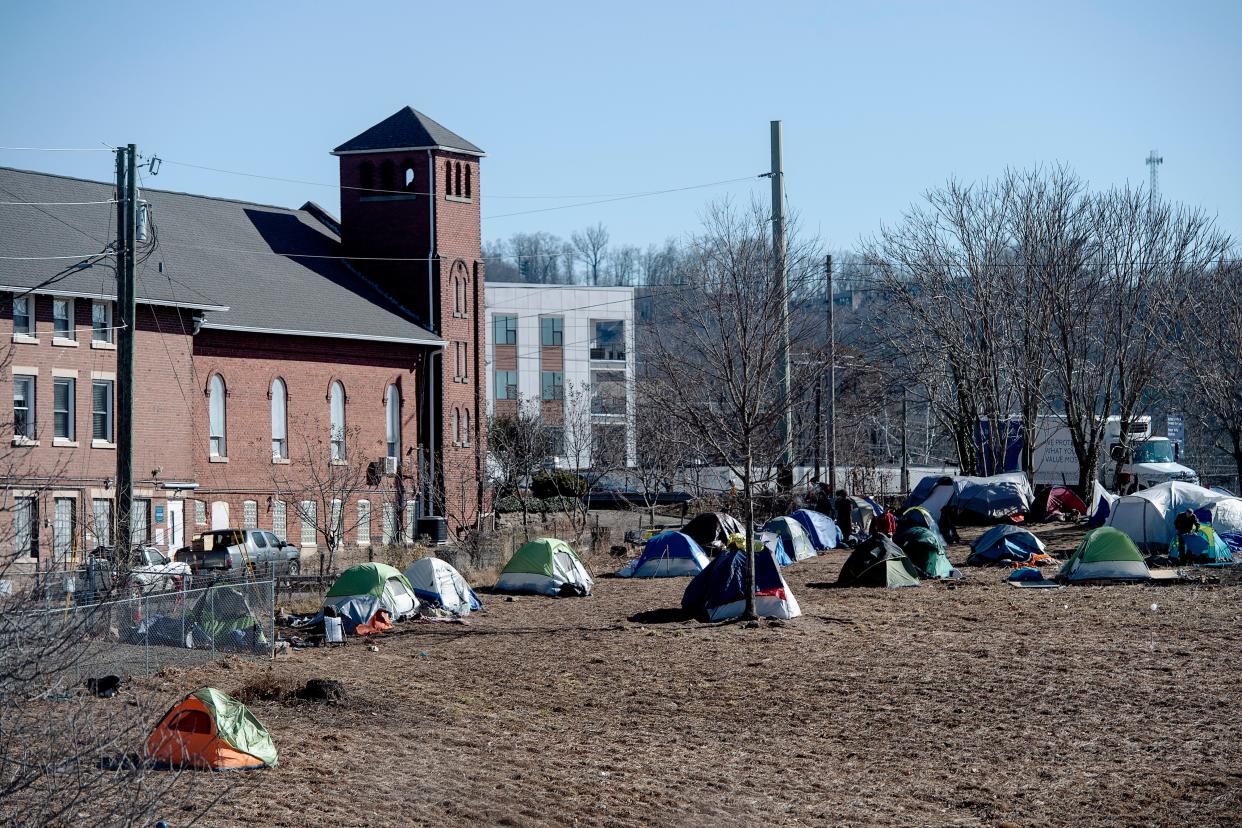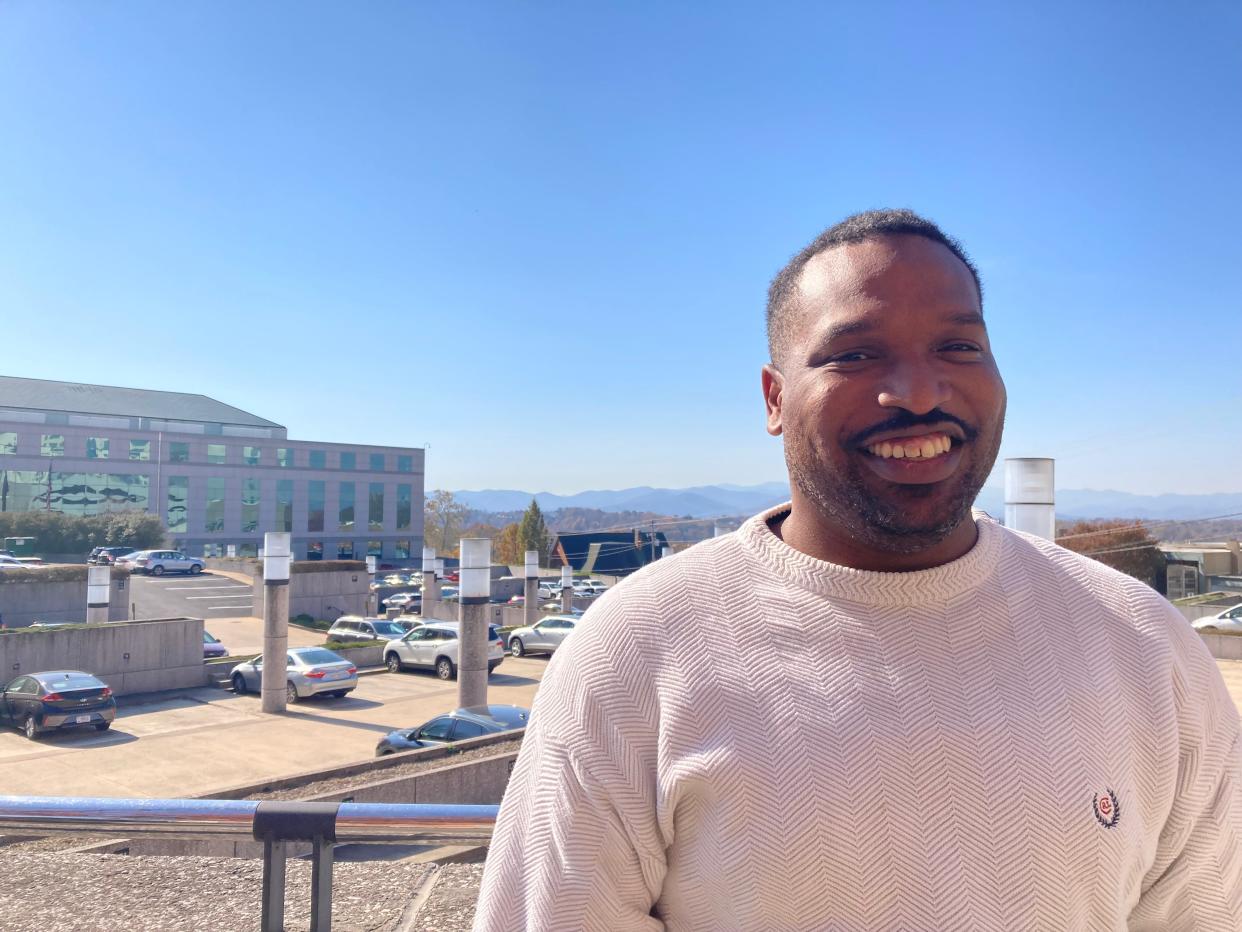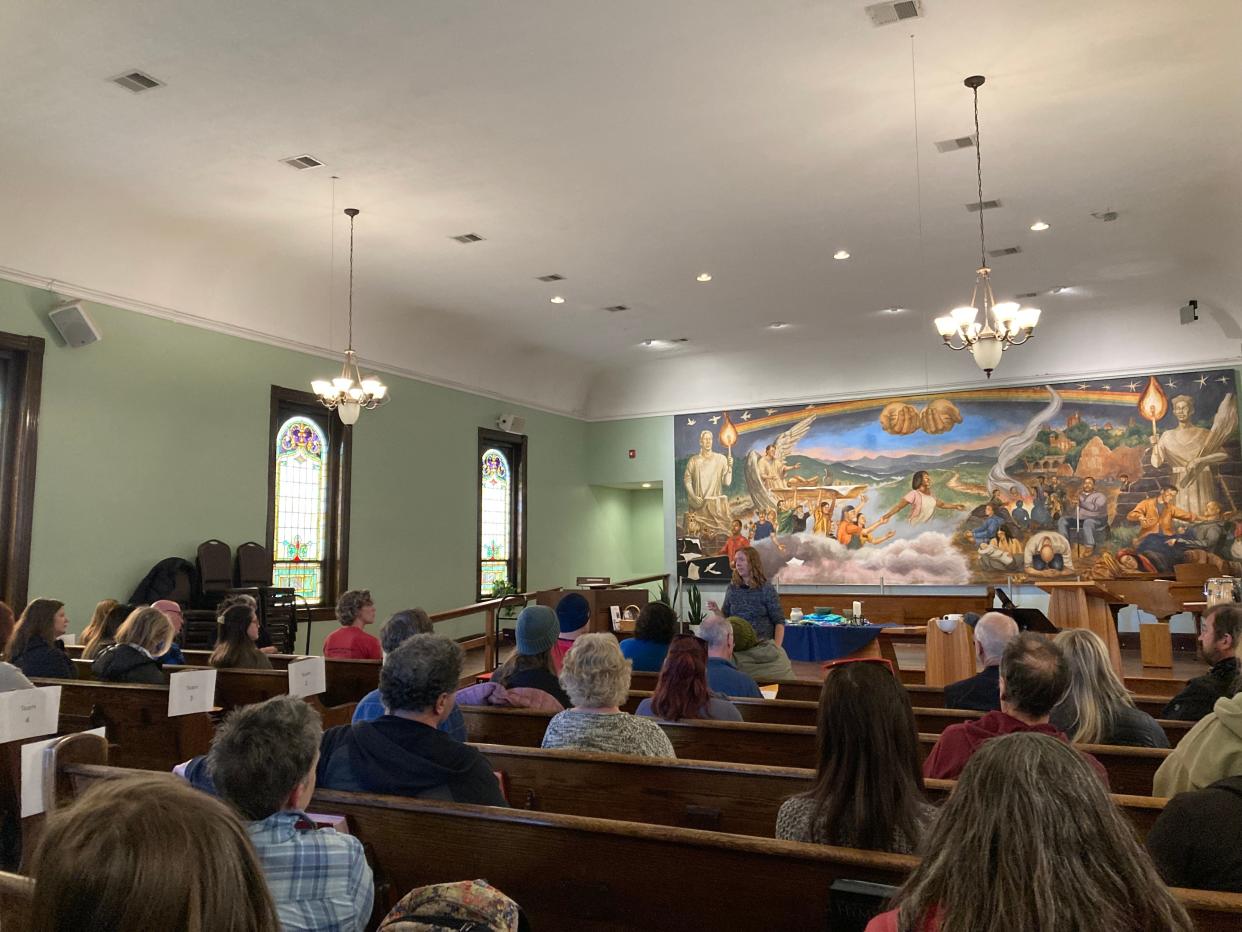Volunteers ask Asheville's homeless: What do you wish our community understood?
ASHEVILLE - During its annual homelessness count, volunteers asked a new question of those they surveyed: What is one thing you wish our community understood about homelessness?
Responses reveal the diverse landscape of homelessness in Asheville. Several address common myths and misconceptions. They say: For many of us, it's not a choice. It's not always the result of substance use or addiction. We're not trash. We're trying our best. Sometimes, we don't feel safe either. A single mistake can lead to homelessness. We are real people, we exist.
This year's point in time data introduced a new methodology. More volunteers and coverage resulted in a much higher unsheltered count, the city says. It identified 102 additional people who may otherwise have gone uncounted.

The January results were reported at an April 26 meeting of the Asheville and Buncombe Continuum of Care membership, where they also elected a new leadership board. The count found 739 total people experiencing homelessness — 520 in shelter and transitional housing, 219 unsheltered.
That's up from last year's total of 573 — 401 in shelter and 171 unsheltered.
Mayor Esther Manheimer, who represents Asheville City Council as a non-voting liaison of the new board, has volunteered during the PIT count for several years.
“Every time you do this work in the point in time count, and everybody should, it’s kind of life changing,” she said. That final question, in particular, was something she wished everyone could hear the answers to.
“Before I started this work, I think like a lot of people, I kind of superimposed what I thought someone who is experiencing homelessness would say and think and do. But just like with anything, you start talking to people, and people become real and not theoretical, and you hear from them and you think, well of course. That makes so much sense. You’re scared. You’re feeling hopeless .... You want a place to live," Manheimer told the Citizen Times April 26.
"This shouldn’t be an ‘aha’ moment, but I think for a lot of people it still is.”
Read the full list of responses:
PIT Supplemental Survey Ful... by Sarah Honosky
Board, experts weigh in
The Continuum of Care, or CoC, is a planning body of people who work together to build and oversee a coordinated response to homelessness. It's a framework overseen by the U.S. Department of Housing and Urban Development.
Restructuring the Asheville and Buncombe County CoC was a top recommendation from the National Alliance to End Homelessness, which compiled a report for the city and county, delivered in January 2023.
With its newly elected board, the CoC has officially taken that step. It begins a new phase of work in Asheville, Manheimer said, one she is hopeful will make a difference.

Christian Chambers, director of Safe Shelter and another new board member, also said he was "really hopeful for this new opportunity to collaborate."
Safe Shelter is a 20-bed, year-round homeless shelter housed at AHOPE downtown, though it is moving temporarily to one of its partner churches, Grace Episcopal on Merrimon Avenue, next week, Chambers said.
He hopes for work to continue toward a low-barrier shelter, which Manheimer also named as a priority, along with existing bed expansion, coordinated entry system improvements and diversion interventions.

"We're all human, and we should be treated as such," was his takeaway from the responses of the city's unhoused community. It's something that's on his mind as the shelter prepares to move.
"Whatever your preconceived notions are, somebody could be thinking that about you, but because you have a house, you can just close the door. These people don't have that option."
Josh Morrow, a board member representing a "subject matter expert with lived experience," was homeless in Asheville for five years. Now he's the recovery center coordinator for Sunrise Community for Recovery and Wellness, and a peer support specialist.
"I just want to see change. I know from my experience and other peers' experiences of some of the challenges we go through being houseless. The stigma that comes along with it. The misunderstanding," he told the Citizen Times April 26.
The last two years of the five he was experiencing homelessness, "I was already drug free, my whole life had changed, but I still couldn't get housing."
One of the biggest obstacles? There was almost nothing available. When there were units, he didn't make enough to qualify.
Of what he wanted people to understand, he said, "It is really not a choice."
"It's not easy to get out of," Morrow said. "Once the cycle starts, it takes a community to bring somebody out of it."

Point in time takeaways
Emily Ball, manager of the city's Homeless Strategy Division, offered five key takeaways from the 2024 PIT count numbers:
The data does notshow an increase in unsheltered homelessness, Ball said. In comparison with previous years' methodology, it shows a 32% decrease.
It does give a more accurate picture than the city has had in the past about unsheltered homelessness that is more in line with what providers and the community have always seen and expressed.
The service system lost about 100 beds during the pandemic. "Emergency shelter and transitional housing are critical parts of the service system," Ball said. "And it's great to see this essential system capacity back up this year to pre-pandemic levels."
PIT data has always been and will always be imperfect. "Our bigger focus should be on improving year-round data collection through (the Homeless Management Information System) so the CoC has more meaningful and reliable data to drive its decision-making about programs, funding, policy, and system design changes," she said.
More accurate PIT data is a great launch point for the new CoC. The more the membership, board and committees understand about who's homeless, the better their strategy can be to develop an effective response for people who are suffering and for the community as a whole.
"I wasn't surprised, but I was glad to see it being captured," Chambers said of the new data. He was glad to see "more accurate" data. It's data catching up with reality, he said.
"Perfect timing for a new CoC that's trying to be real."
Melanee Rizk, Haywood Street Congregation's lead storyteller, said in the past she's been skeptical of the point in time count, aware that there were gaps and populations being missed. The numbers felt "lower than they should be," particularly for the unsheltered count.
"This year, my reaction is: these seem closer to what the actual number of unhoused folks in Asheville is," she said.
The nonprofit works closely with the city's unhoused population, and is a sanctuary for many people who are unsheltered in Asheville.
"I think the way the housing crisis is right now, it's making it a lot harder for people to stay housed. And if they lose their housing, (it's harder) to find housing. There are so many barriers that are against people who are right on that margin of being homeless. I don't think our society understands how many people are that close to being unhoused" Rizk said.
"I'm really excited about (the new Continuum of Care). I'm excited to see just what can come of this, what it means for our community members, like those at Haywood Street who are unhoused or close to being unhoused. Hopefully that will be where the difference is made."
More: Asheville 2024 homeless count numbers released. How do they compare to last year?
More: Asheville musicians' Haw Creek homes face demolition; say artists 'getting squeezed out'
Sarah Honosky is the city government reporter for the Asheville Citizen Times, part of the USA TODAY Network. News Tips? Email shonosky@citizentimes.com or message on Twitter at @slhonosky. Please support local, daily journalism with a subscription to the Citizen Times.
This article originally appeared on Asheville Citizen Times: Asheville's unhoused answer homelessness questions
